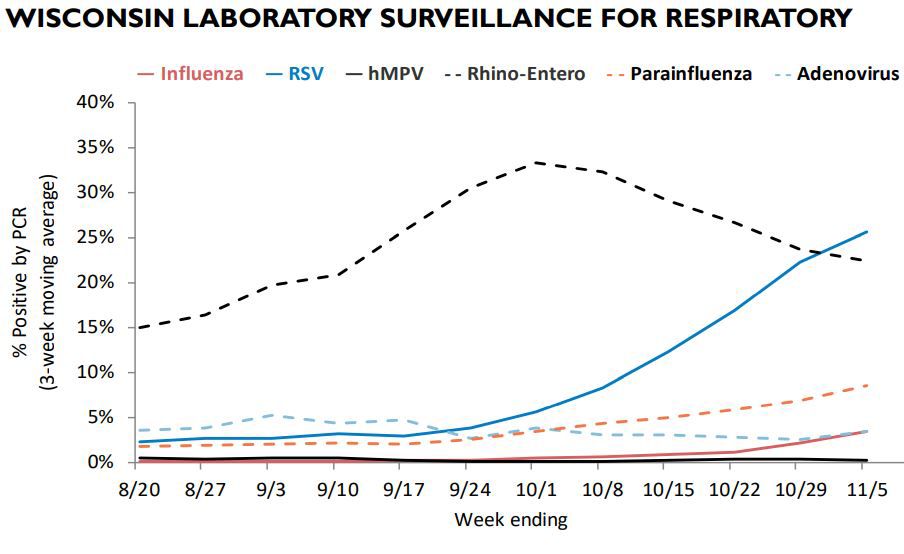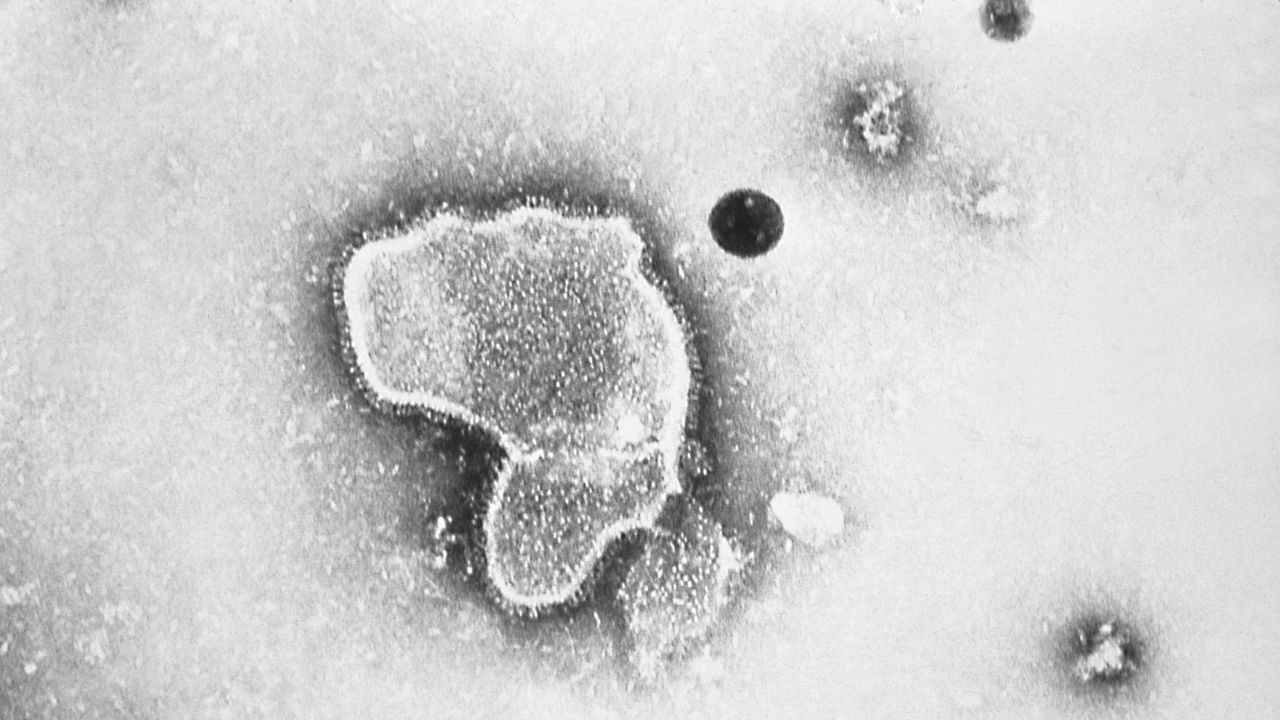WISCONSIN — With several respiratory viruses circulating at higher levels than normal already this season, the Wisconsin Department of Health Services are urging residents to get vaccines as soon as possible.
The viruses of concern are COVID-19, respiratory syncytial virus (RSV) and influenza.

“Wisconsin hospitals are already seeing an alarming number of hospitalizations due to respiratory illnesses,” said DHS Secretary-designee Karen Timberlake. “It is essential for Wisconsinites to get their updated COVID-19 booster and annual flu vaccine to protect their health, especially with the holiday season right around the corner.”
All Wisconsinites ages 6 months and older can get their COVID-19 and flu vaccines at the same time. Everyone 5 years and older should also get an updated COVID-19 booster when eligible.
RSV mixed with flu cases are overwhelming hospitals across the nation. Between Oct. 30 to Nov. 5 in Wisconsin, 2,273 residents tested positive for RSV, compared to 2,043 the week before, according to Wisconsin DHS.
While Wisconsin is still in the low-to-moderate levels for flu cases, many southern states have already peaked in their outbreaks, according to the latest data from the Centers for Disease Control and Prevention. Last year, Wisconsin remained in the "minimal" level for flu cases.
"In Wisconsin, the activity of these viruses has increased over the past few weeks to levels higher than would typically be expected for this time of year, based on data reported to the Wisconsin State Laboratory of Hygiene and the National Enteric and Respiratory Virus Surveillance System," DHS wrote in a letter to state health providers. "Data from syndromic surveillance of hospital emergency departments also indicate a significant increase in influenza-like illness among children less than five years old. Combined with an increase in COVID-19 cases, this is the first year that three severe respiratory viruses are circulating simultaneously with significant increases in cases being reported."
Health officials encourage families to get vaccine and learn more about the symptoms and how to prevent the spread of these viruses, particularly RSV.
Symptoms of RSV
The virus causes cold-like symptoms and is the most common cause of bronchiolitis and viral pneumonia in infants under 1 year old. RSV can cause severe illness in older adults.
RSV is spread through respiratory droplets when someone coughs or sneezes, and they can settle in the eyes, nose or mouth of another person or on common household items, such as tables, doorknobs, cellphones and tablets. If an individual is sick with RSV, it can easily be passed to babies by snuggling them.
In some cases, RSV infection can lead to worsening of chronic conditions like asthma, chronic obstructive pulmonary disease and congestive heart failure.
Symptoms can change depending on age. Babies younger than 6 months old may show:
- Irritability
- Decreased feeding
- Decreased activity level
- Temporary pauses in breathing (apnea)
- Fever
- Wheezing
Older babies and children may show:
- Runny nose
- Nasal congestion
- Decreased appetite a few days before the cough
- Sneezing
- Fever
- Wheezing
In adults, the symptoms may mimic the common cold and include:
- Runny nose
- Sore throat
- Cough
- Headache
- Fatigue
- Fever
Preventing RSV infection
- For some babies who meet specific criteria for being at high risk of getting RSV, there is a preventive monoclonal antibody called Palivizumab available. Your child’s health care provider will discuss this option with you if your baby or child is eligible. Monoclonal antibodies will not treat or cure an existing infection and are only used to prevent RSV in eligible individuals.
- Encourage good handwashing of adults and older children in the household for at least 20 seconds.
- Remember to cover coughs and sneezes.
- Avoid close contact with anyone who is sick (avoid kissing, handshakes, sharing eating or drinking utensils).
- Clean high-touch surfaces like doorknobs, tables, cell phones and other electronics.
- Older children, caregivers, and adults in the home who are sick with viruses should avoid interactions with individuals considered to be at high risk of severe RSV.
- Limit time in potentially contagious settings such as child care centers.
- Decrease or eliminate exposure to environmental secondhand smoke and breastfeeding, if you can, to help reduce respiratory infections.
- Keep an eye on RSV trends in your area and take extra precautions when needed.



